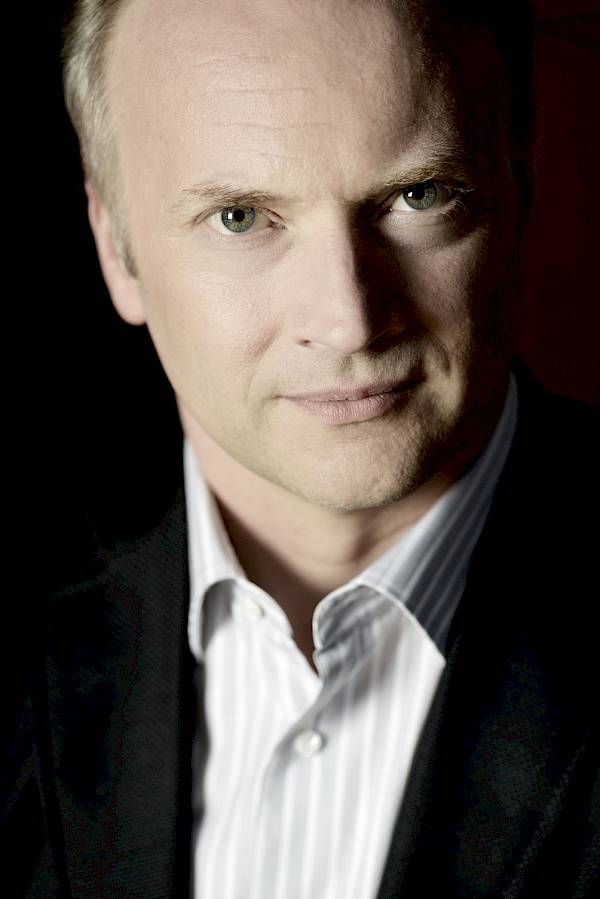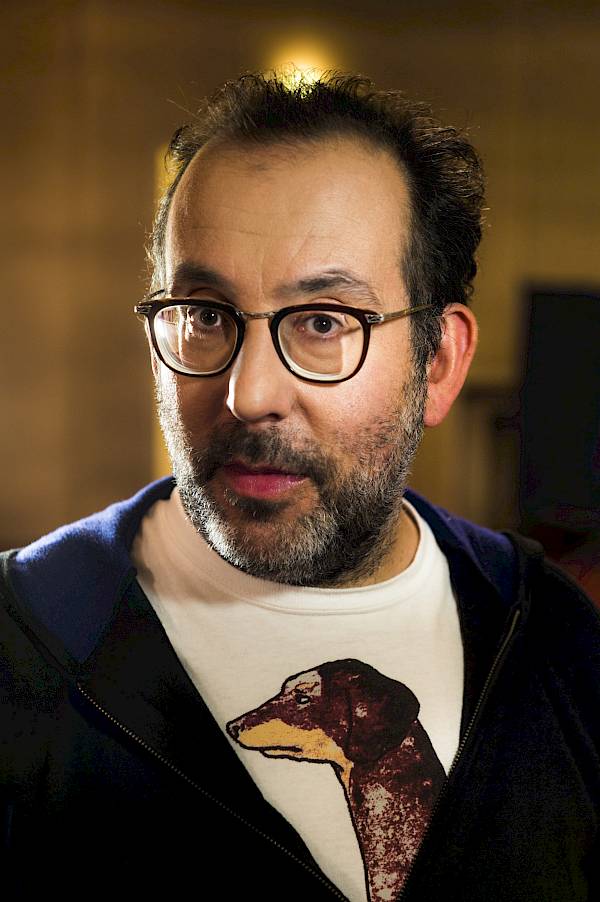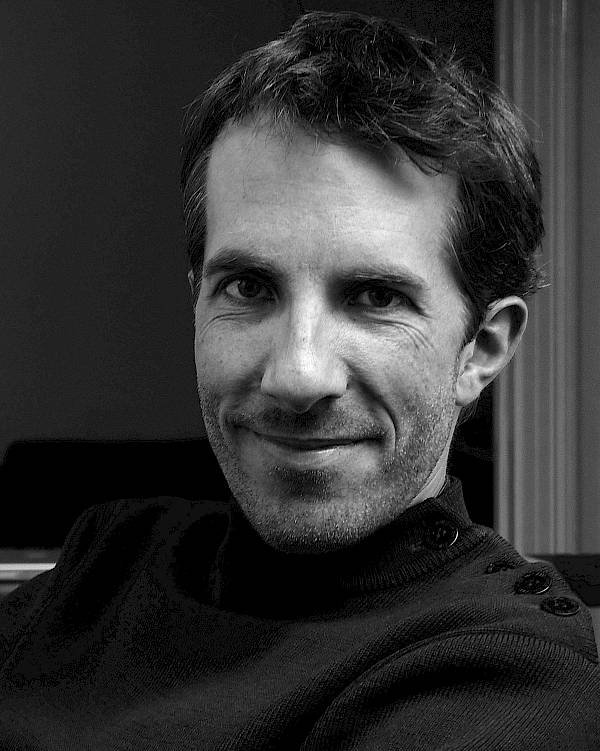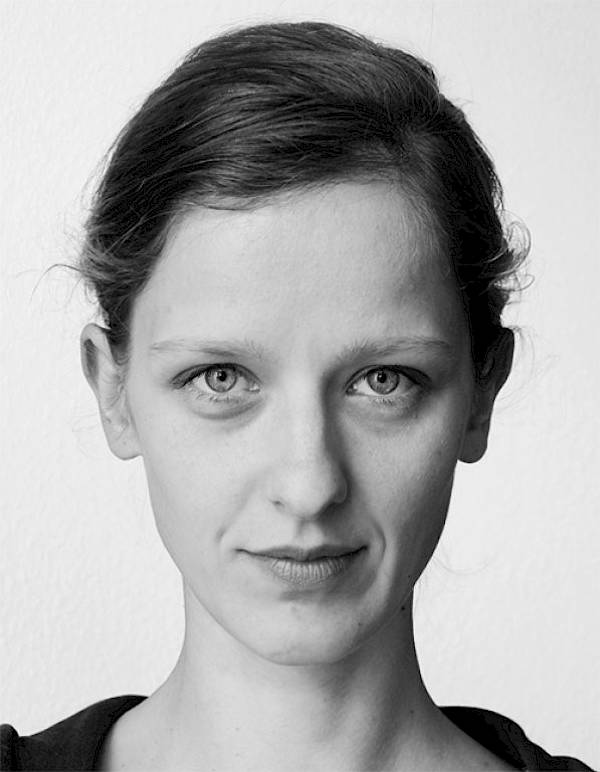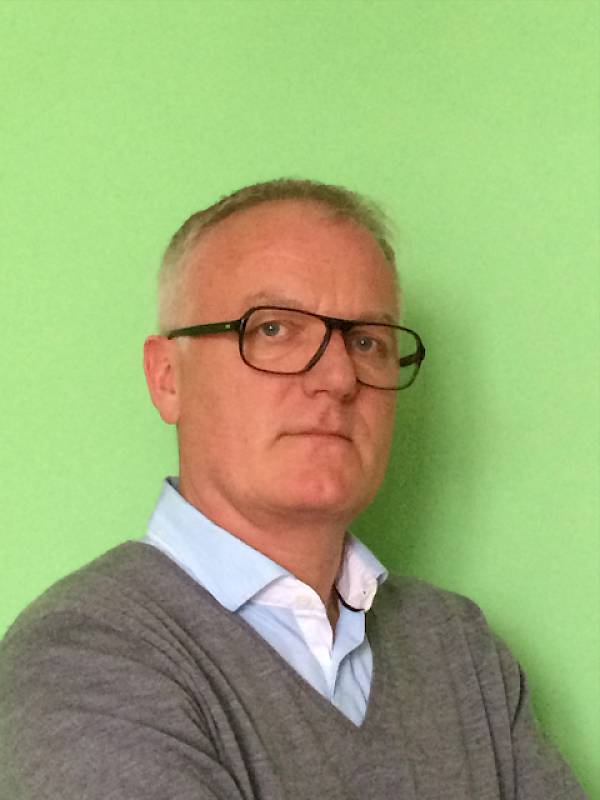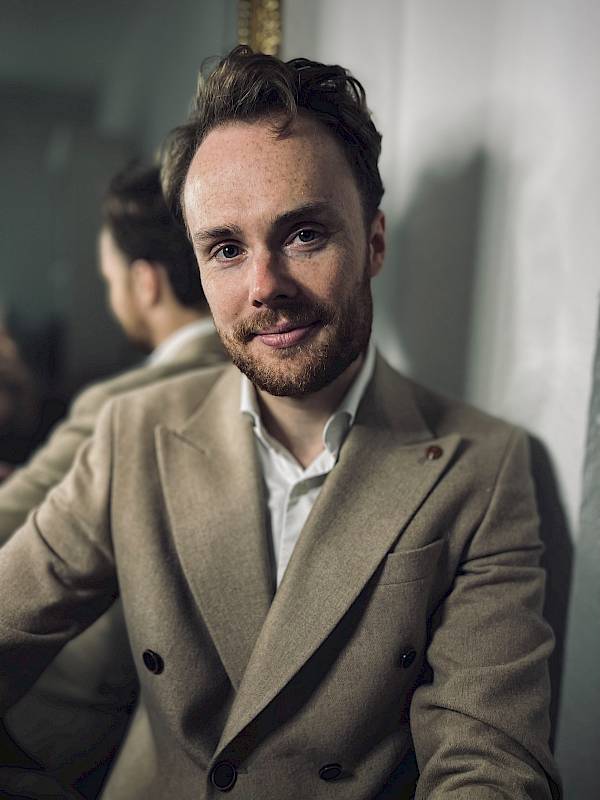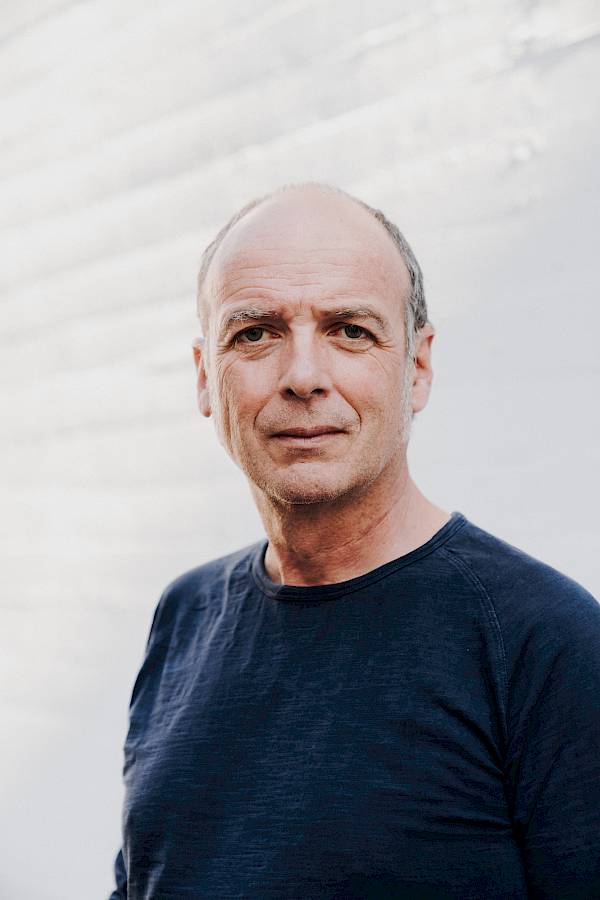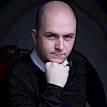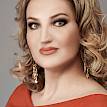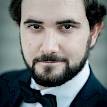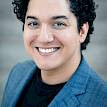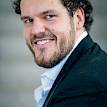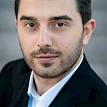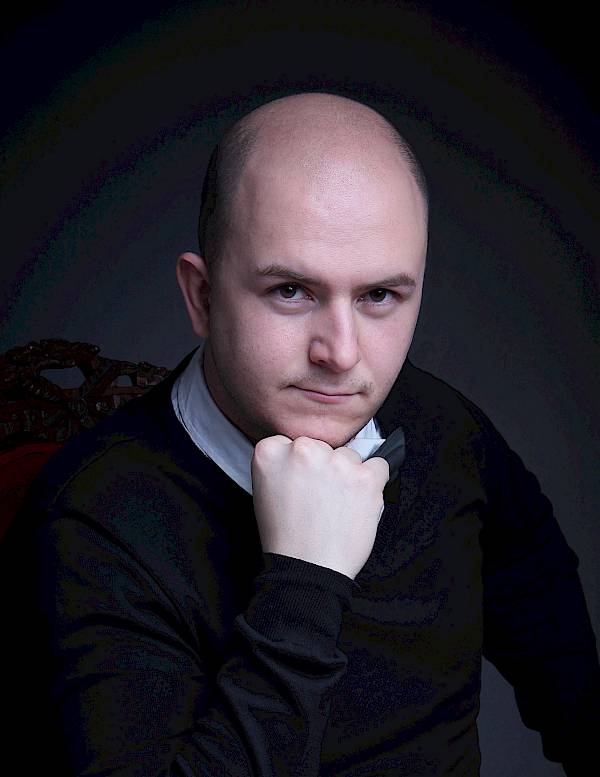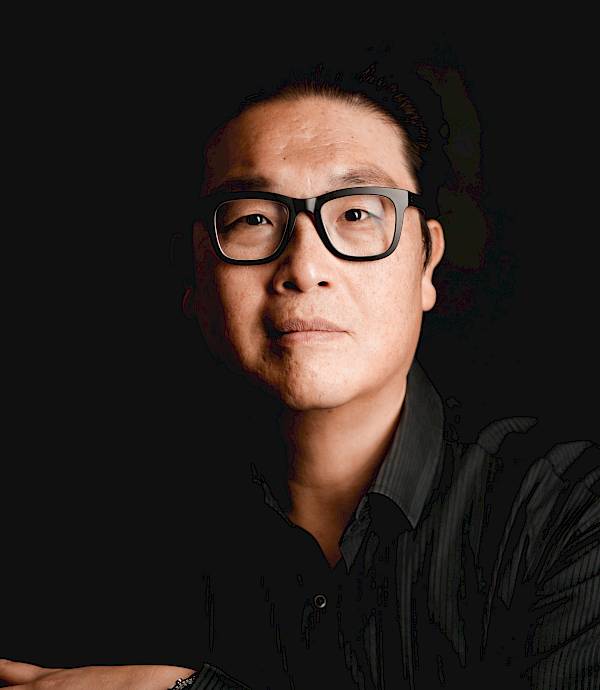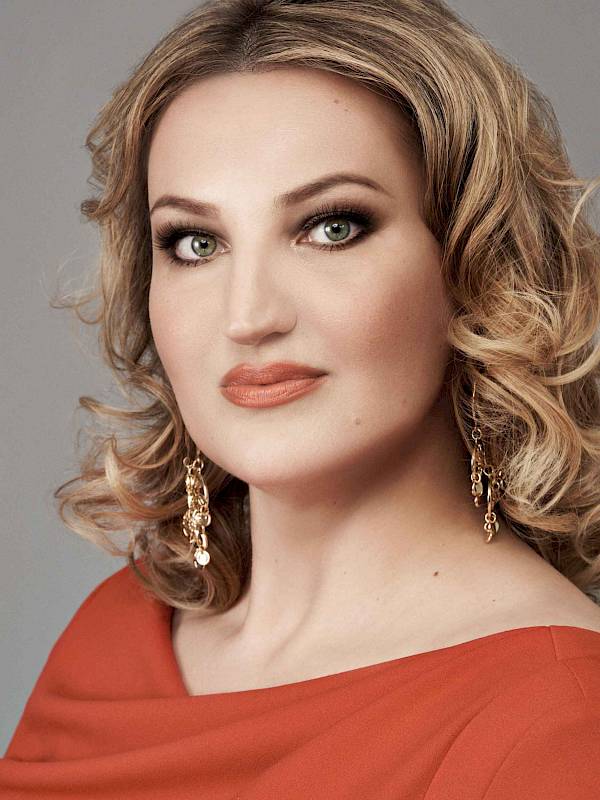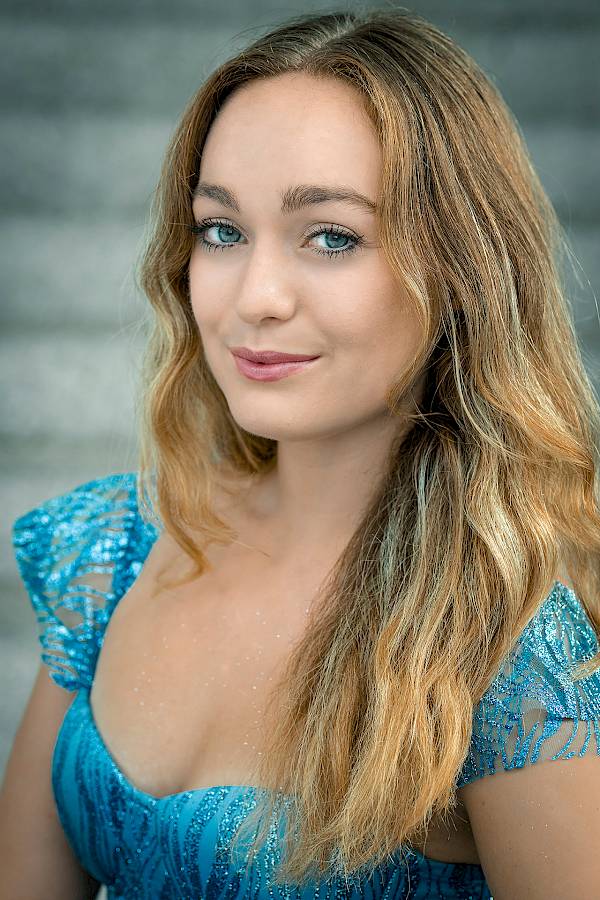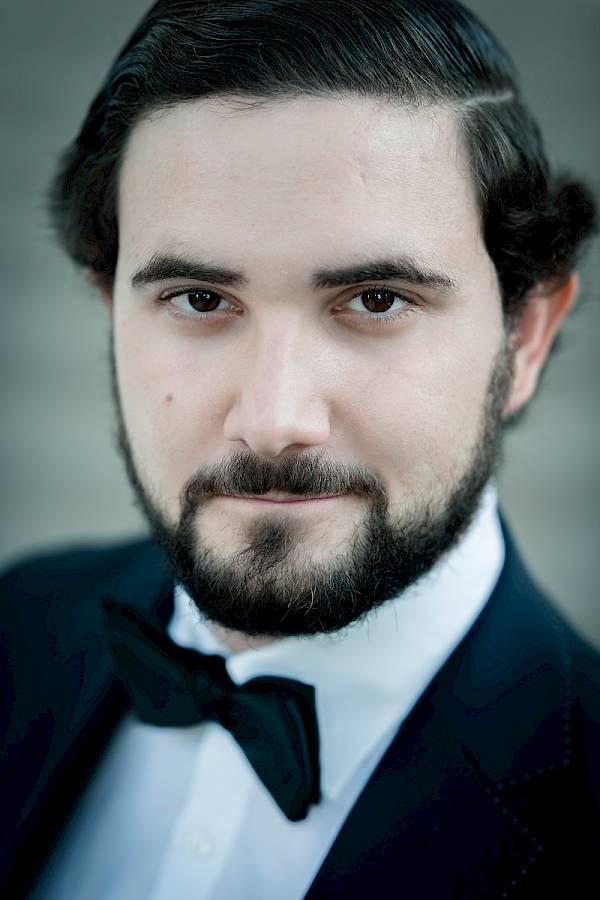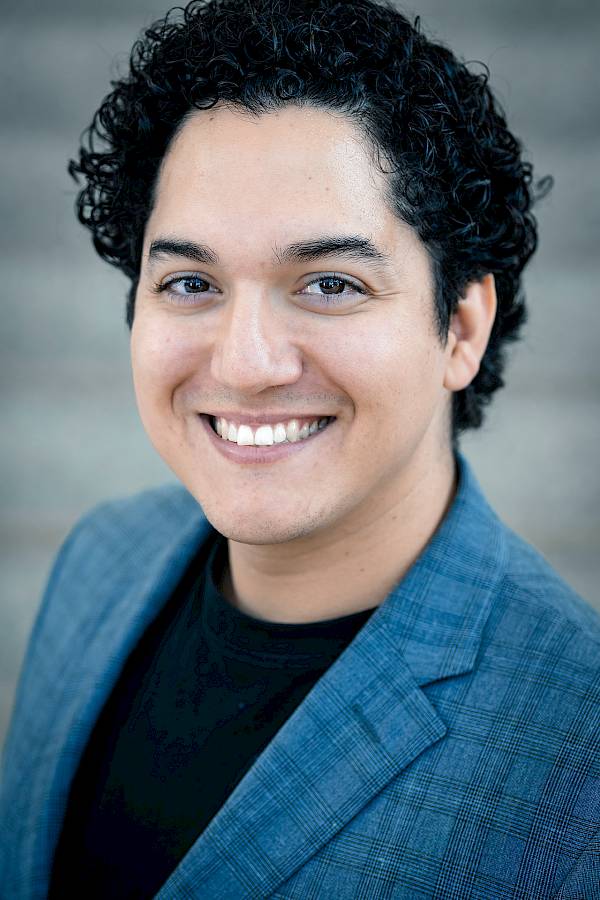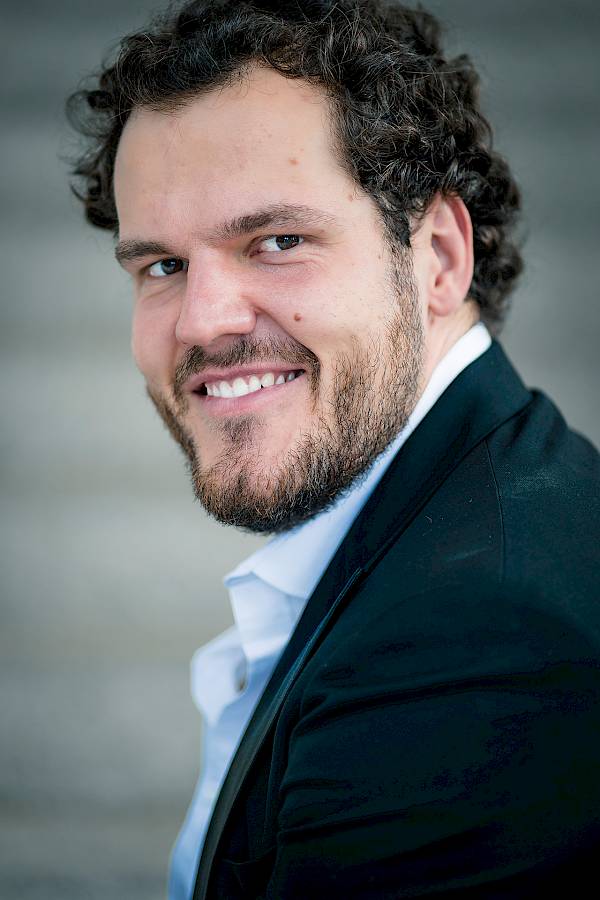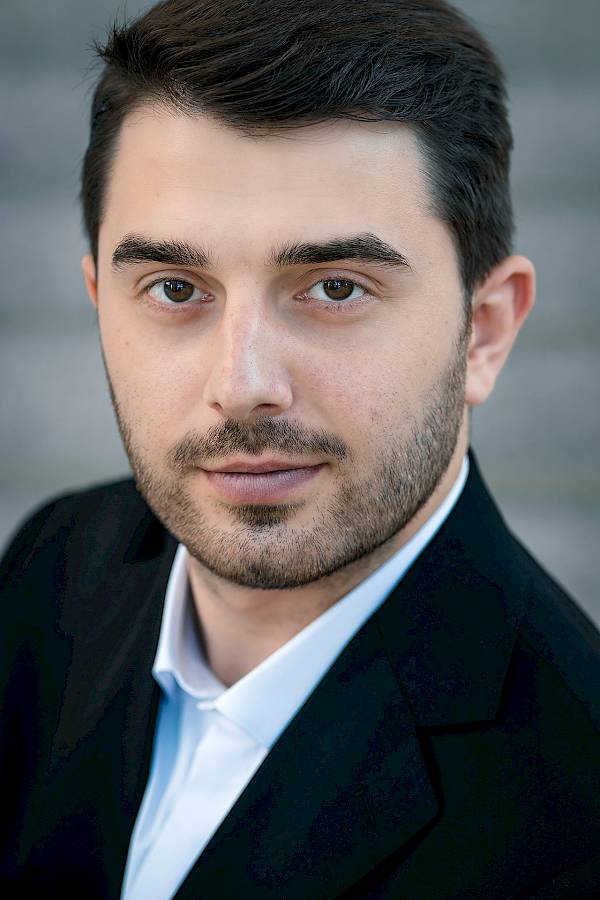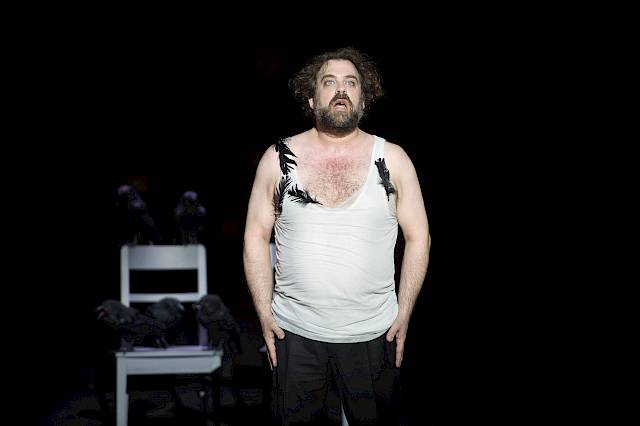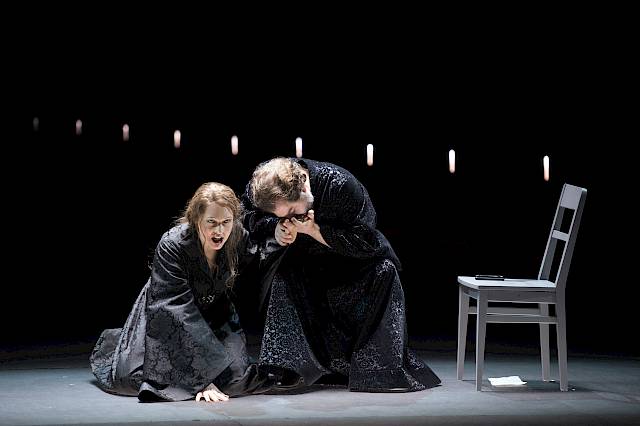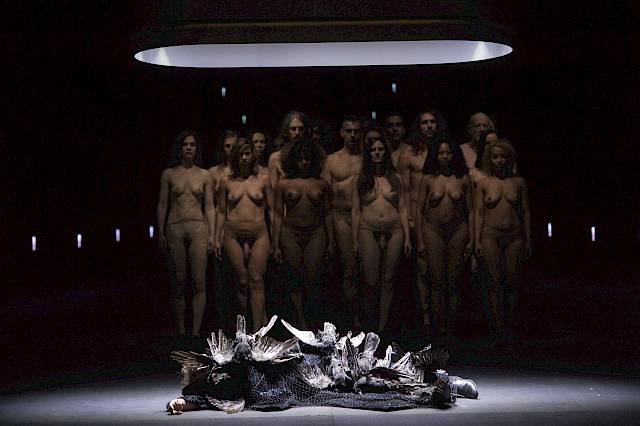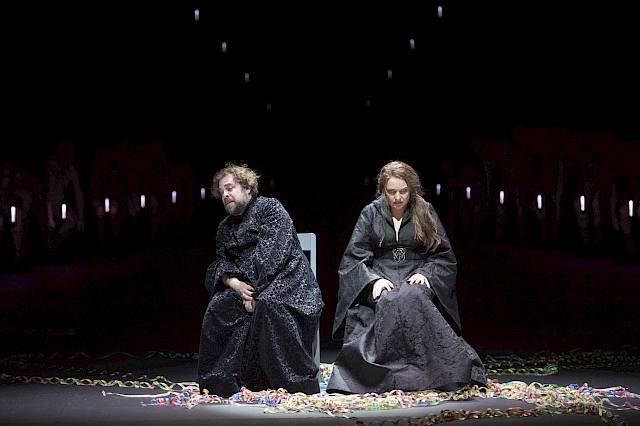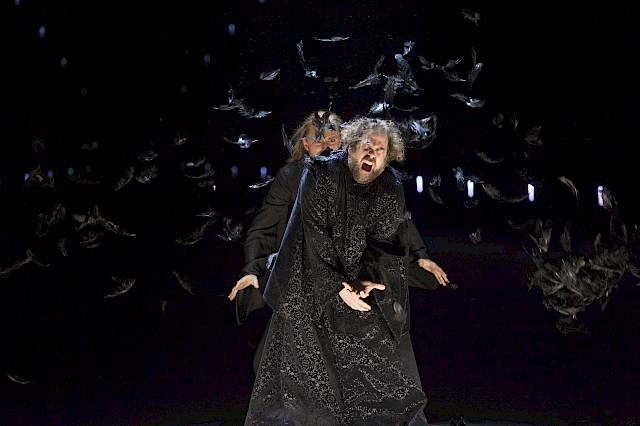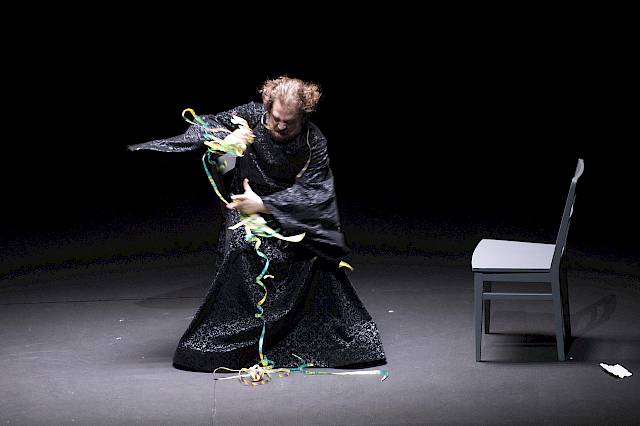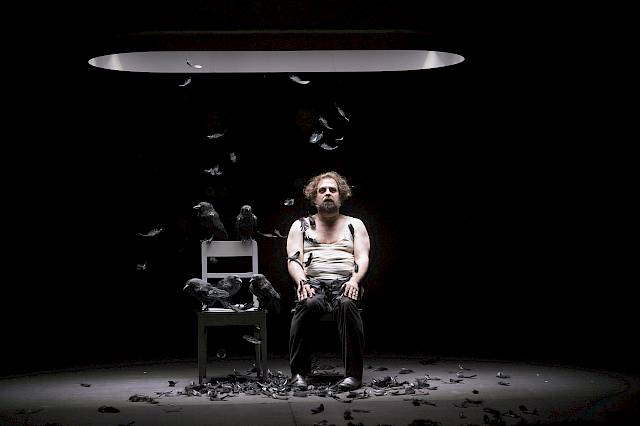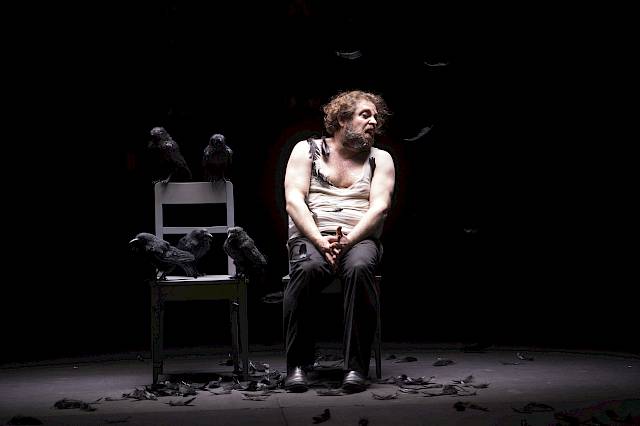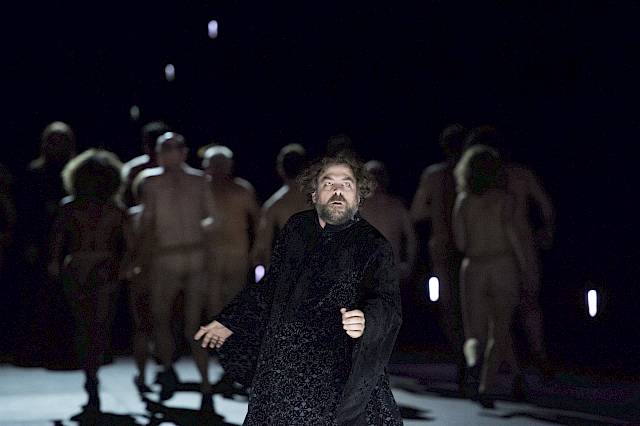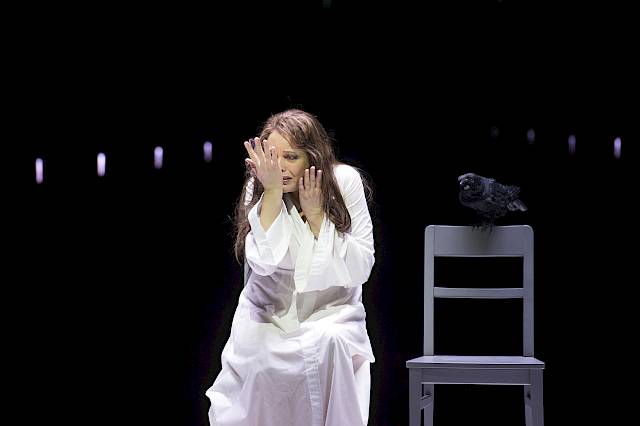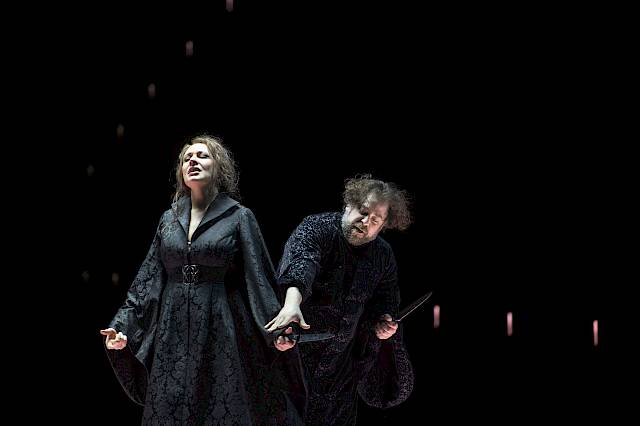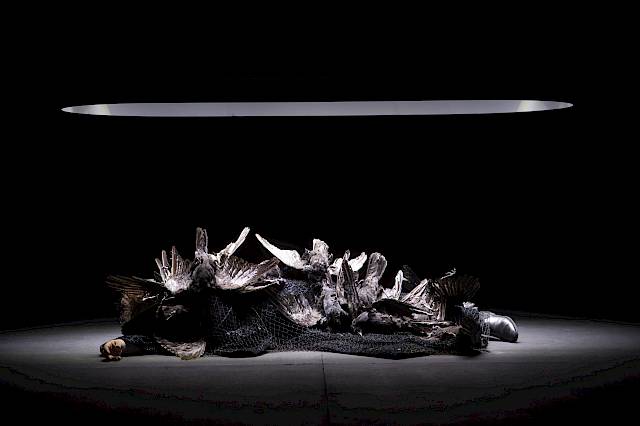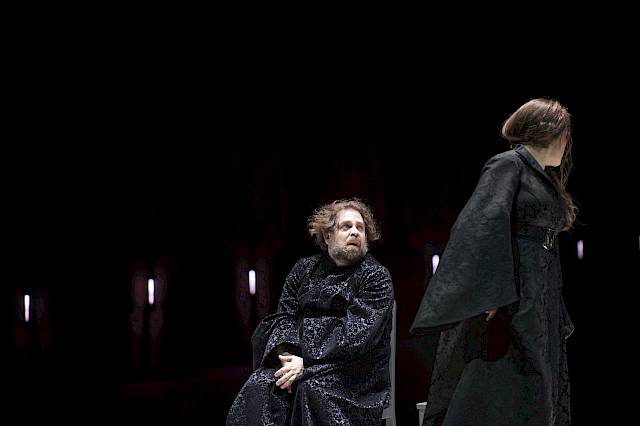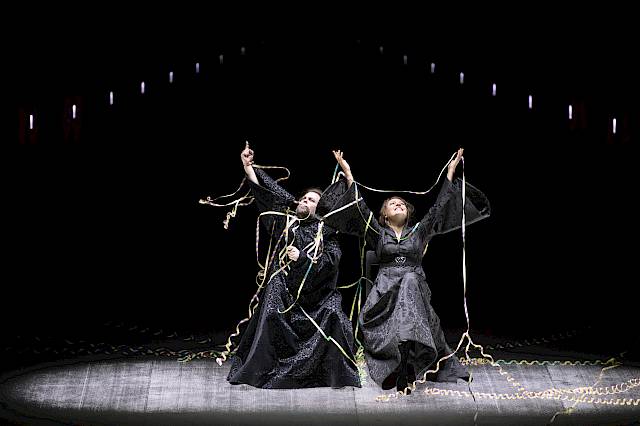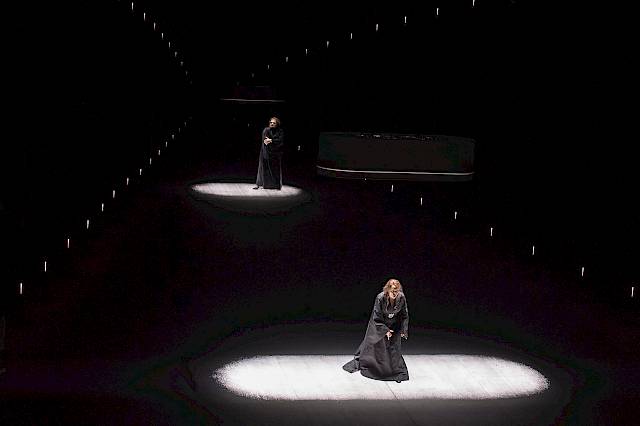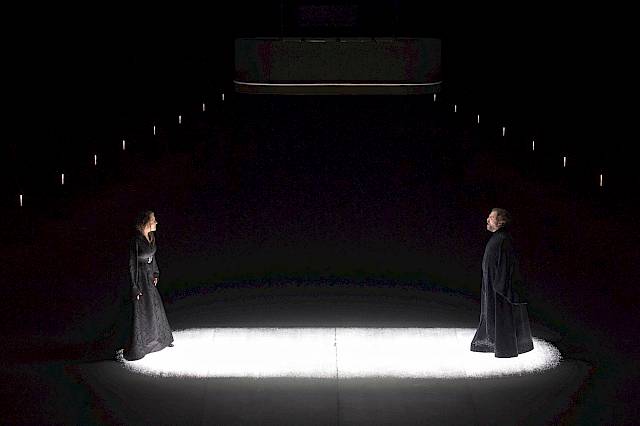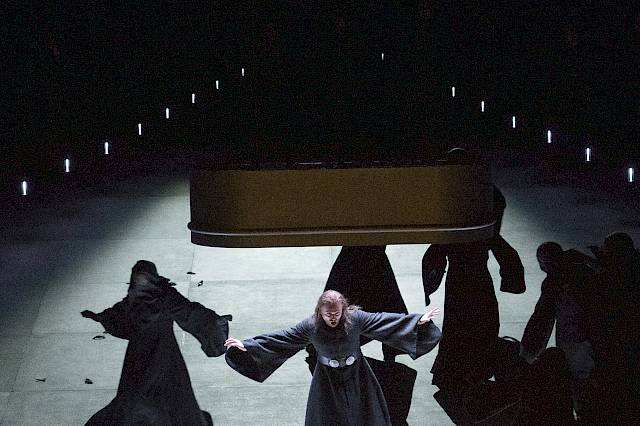Erster Akt
Macbeth hört die Stimmen der Hexen. Sie prophezeien ihm, dass er Herrscher über Cawdor und König von Schottland wird. Seinem Begleiter Banco sagen sie voraus, dass er «Vater von Königen» sein wird.
Kurz darauf vernehmen Macbeth und Banco die Nachricht, dass Macbeth tatsächlich von König Duncan zum Herrscher über Cawdor ernannt worden ist. Die erste Prophezeiung hat sich erfüllt.
Macbeth fragt sich, ob auch die zweite Prophezeiung in Erfüllung geht und hat einen blutrünstigen Gedanken.
Lady Macbeth erfährt durch einen Brief Macbeths von den neuesten Entwicklungen und will ihren Ehemann um jeden Preis auf dem Thron von Schottland sehen. Als König Duncan seinen Besuch bei Macbeth ankündigt, beschwört Lady Macbeth die Geister der Hölle und stiftet ihren zögernden Gatten zum Königsmord an.
Macbeth sieht einen Dolch vor sich, der mit dem Blut des Königs beschmiert ist. Der blutige Dolch ist das Trugbild von Macbeths grausamen Mordgedanken.
Macbeth kehrt nach dem Mord zu Lady Macbeth zurück, hört Stimmen und halluziniert den schrecklichen Anblick des getöteten Königs. Die Lady fordert ihn auf, den Wachen den Dolch unterzuschieben, um den Tatverdacht auf sie zu lenken. Macbeth sieht sich ausserstande, zum Tatort zurückzukehren. Die Lady geht selbst.
Der Königsmord wird entdeckt. Die Hofgesellschaft fleht zu Gott, den Menschen Beistand zu leisten und den Täter hart zu bestrafen.
Zweiter Akt
Macbeth ist König von Schottland. Auch die zweite Hexen-Prophezeiung hat sich erfüllt. Aber die Weissagung, Banco werde «Vater von Königen» sein, lässt Macbeth keine Ruhe. Er fasst den Entschluss, auch Banco und seine Nachkommen zu töten. Lady Macbeth bestärkt ihn in dieser Absicht und sieht sich am Ziel ihrer Machtfantasien. Macbeth gibt die Morde in Auftrag.
Banco ahnt Unheilvolles. Er warnt seinen Sohn Fleance. Banco wird ermordet, aber Fleance gelingt die Flucht.
Der neue König Macbeth gibt ein Fest, und Lady Macbeth stimmt ein Trinklied an. Macbeth sieht mitten im fröhlichen Treiben plötzlich Bancos Geist vor sich.
Lady Macbeth verhöhnt ihren Ehemann als Feigling. Macbeth beschliesst noch einmal die Hexen zu befragen, um etwas über seine Zukunft in Erfahrung zu bringen. Macduff durchschaut, dass die Macht des neuen Königs auf verbrecherischen Taten gründet und flieht. Die Menschen sind entsetzt von Macbeths Wahn. Sie ahnen, dass aus dem Land eine Mördergrube geworden ist.
Dritter Akt
Macbeth hört erneut die Stimmen der Hexen. Sie beschwören finstere Mächte herauf. Diese warnen ihn vor Macduff, versichern ihm, dass ihm keiner gefährlich werden könne, der von einer Frau geboren worden sei, und dass er unbesiegbar bleibe, bis sich der Wald von Birnam bewege. In einer Vision sieht Macbeth eine Prozession von Königen vorbeiziehen, in denen er Bancos Nachkommen erkennt.
Macbeth erzählt Lady Macbeth von seinen Visionen. Die beiden steigern sich in einen Rausch des Hasses auf den vermeintlichen Rivalen Macduff und fassen den Beschluss, ihn und alle seine Nachkommen zu töten.
Vierter Akt
Die Menschen beklagen die Demütigung des geknechteten Vaterlandes.
Macduff denkt immerzu an seine ermordete Familie, die ebenfalls von Macbeth getötet wurde. Er will dem Tyrannen entgegentreten und Vergeltung für die grausame Tat üben.
Gemeinsam mit Duncans Sohn Malcolm setzt sich Macduff an die Spitze des Widerstandes. Mit Ästen aus dem Wald von Birnam als Tarnung ziehen sie mit ihrem Heer gegen Macbeth.
Lady Macbeth schlafwandelt. Sie sieht Blutflecke an ihren Händen, die auch durch unentwegtes Säubern nicht wegzukriegen sind.
Macbeth ahnt, dass die Nachwelt ihn verdammen wird. Die Nachricht vom Tod seiner Gattin lässt ihn gleichgültig.
Macduff tritt Macbeth entgegen und sagt ihm, dass er nicht auf natürlichem Wege geboren, sondern aus dem Leib seiner Mutter geschnitten wurde.
Macbeth unterliegt im Kampf gegen die Aufständischen. Er sieht sich am Ende seiner Mörder-Existenz: «Der Blitz der Rache fällt auf mich Verdammten. Ich sterbe im Zorn mit dem Himmel und der Erde.»
Malcolm wird als neuer König gefeiert.


